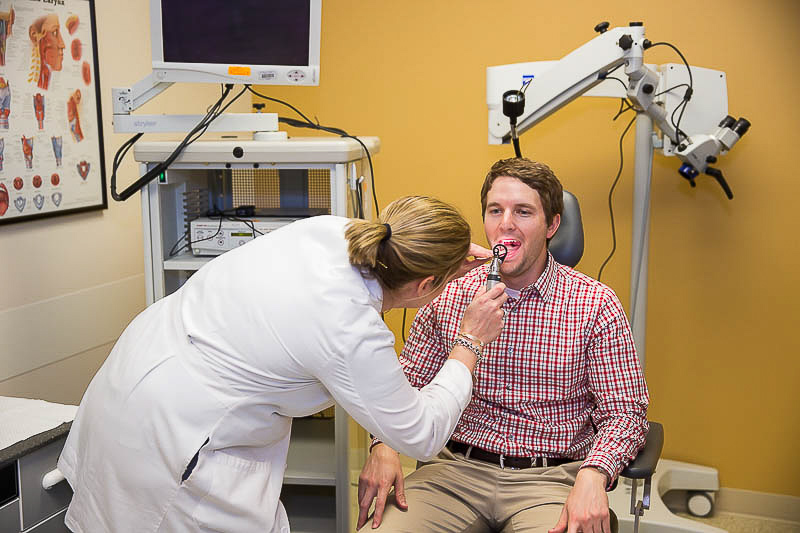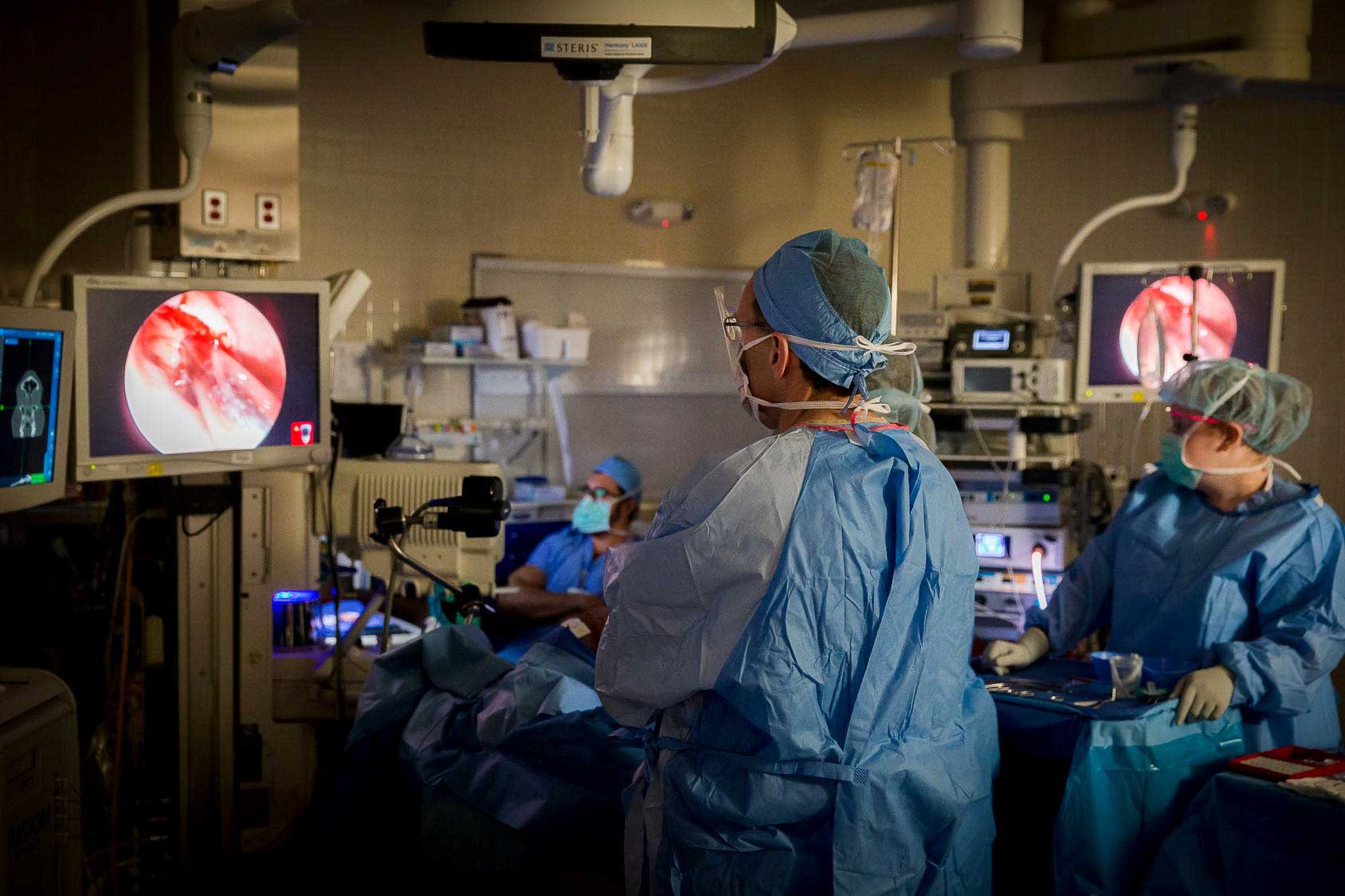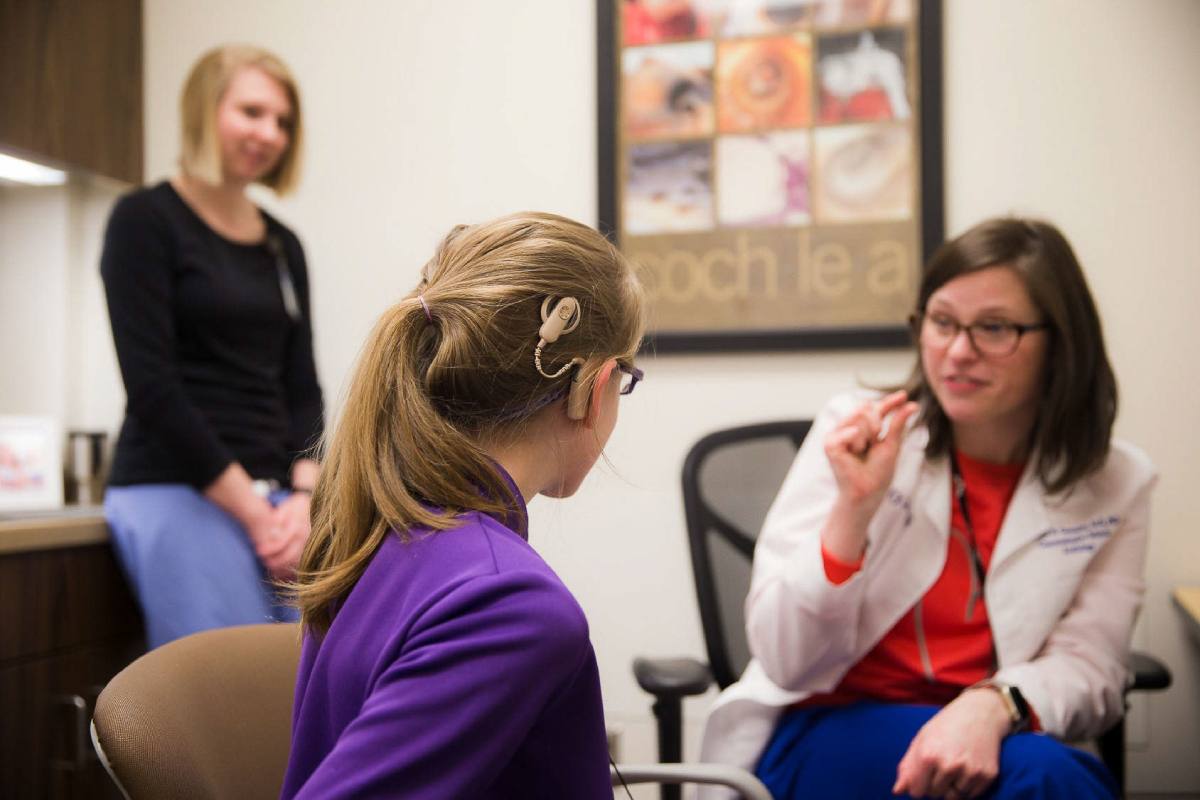What to Expect as a Resident
Clinical & Surgical Experience










The UMMC Department of Otolaryngology - Head and Neck Surgery Residency is a fully accredited 5-year program accepting 3 residents each year and offering a robust clinical and surgical training experience.
One of the major strengths of this program is the large volume of surgical procedures performed by each resident. Residents at the time of graduation will have performed approximately 2,800 cases as a resident or assistant surgeon including otologic, neurotologic, maxillofacial trauma, skull base, head and neck oncologic, endoscopic, facial plastic and reconstructive, laser, pediatric, and sinus surgery. This compares favorably to the latest national average of approximately 2,250 cases as a resident or assistant surgeon.
In the first year of otolaryngology, the resident performs less complicated surgical procedures and assists in major procedures. In this year, the emphasis is on the development of safe and expedient surgical techniques, learning surgical anatomy, and understanding appropriate pre-and postoperative care. During the second year of training, the resident performs more complex surgical procedures. In the final two years of the program, the trainee is expected to have developed the expertise to plan and to carry out most, if not all, of the major and minor otolaryngologic surgical procedures. Representative case lists will be provided to you if you interview here.
Residents are responsible for care of patients on the inpatient floors and in the clinics. All residents are expected to see patients in the clinic along with the attending faculty. Residents also are responsible for seeing emergency room consults. Residents are actively involved in the teaching of medical students who rotate with us in both the third and fourth years.
Program rotation schedule
| Year 1 | First-year residents spend two months on Pediatric Otolaryngology, four months on Head and Neck and one month each on Ophthalmology, Oral Maxillofacial Surgery, Emergency Medicine, Pediatric Surgery, SICU and Trauma. |
| Year 2 | Second-year residents will experience two months each on Pediatric Otolaryngology, Rhinology/Allergy/Sleep, Facial Plastics/Otology/Laryngology and Research. Residents in this year will also complete four months on Head and Neck. |
| Year 3 | Third-year residents spend two months on each on Rhinology/Allergy/Sleep, and Facial Plastics/Otology/Laryngology. Residents in this year will also complete four months on Head and Neck and four months on Pediatrics. |
| Year 4 | Fourth-year residents will experience two months on each of the following: Head and Neck, Rhinology/Allergy/Sleep, Facial Plastics/Otology/Laryngology, Pediatric Otolaryngology, Research, and the VA. |
| Year 5 | Fifth-year residents have a similar rotation schedule to year 4 residents, with the exception of a two month elective taking place of Research. |
Call schedule
Junior residents will on average take primary call from home, which may range from every fourth weekday and every fourth weekend to every sixth weekday and sixth weekend. This number will vary with any residents out on vacation or leave.
Senior residents will on average take every fourth weekday and every fourth weekend to every sixth weekday and every sixth weekend of secondary call from home. This number will vary with any residents out on vacation or leave.


